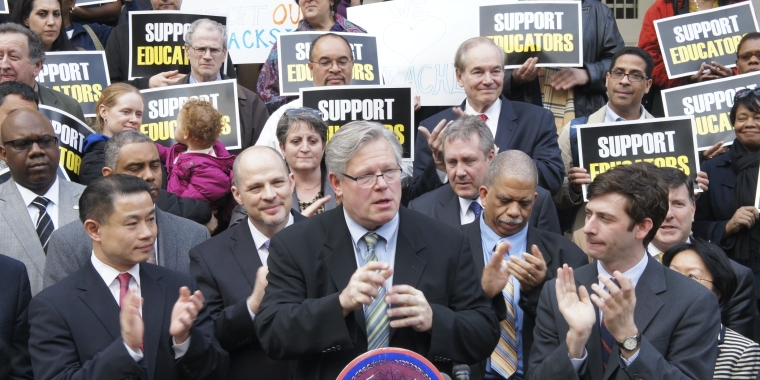
Seeking Meaningful HIV Information And Treatment For Sexual Assault Survivors
There is simply no doubt that victims of sex crimes suffer a great deal of physical and mental anguish, and that there is a need for substantive counseling, treatment and information to help them get on with their lives.
As an elected official, I have a duty to ensure that victims of sexual assault, and all crime victims for that matter, have access to the best information and services that will enable them to recover. I also have the duty to oppose any legislation which does not accomplish this goal. Bills enacted for press releases do a disservice to the Legislature and all New Yorkers.
Such was the case on June 12, 2007, when a bill requiring HIV tests for defendants accused of sexual assault passed the Senate.
While well meaning on its face, the bill failed to address numerous issues related to the health and safety of the victim, including the fact that testing the defendant for HIV will not enable the victim to know whether she or he acquired the virus. The only way for anyone to be 100% sure of her or his HIV status is to be tested.
In order to actually provide real services for sexual assault victims, I introduced an amendment that would do far more to protect sexual assault victims than the original bill. My amendment required that at the first instance of contact, law enforcement officials must notify victims of a sex crime that it is imperative that they receive post-exposure prophylactic treatment, and that the treatment, in order to be most effective, must be started within two to 36 hours of the sexual assault. Moreover my amendment required that the treatment and subsequent HIV counseling be paid for by the State.
Law enforcement officials would also have to notify victims that their HIV status cannot be determined from a defendant’s HIV status. In fact, testing could give victims a false sense of hope -- and that is downright dangerous. Just because a defendant turns out to test HIV negative does not mean that the victims will also test negative for HIV and other sexually transmitted diseases.
The idea of any single victim opting not to undergo testing or stopping prophylactic treatment for HIV just because the defendant in question has tested negative is frightening. The point of my amendment was in no way to protect an HIV positive perpetrator. Far from it, the amendment would insure protection from disease for the victims of sexual assault.
Originally, when the Senate voted on the measure, all my Republican colleagues from across the aisle failed to consider the virtue of the amendment and rejected it. Later, after closer consideration, both the Senate and Assembly saw merit in my amendment and added its provisions to the bill that ultimately passed both houses. Sadly, however, the testing of criminal defendants, remains in place -- therefore, while sexual assault victims will be allowed free prophylactic treatment after their assault, they will still be given the false message that testing their alleged attacker for HIV will reflect their own HIV status. As a result, we have failed victims this time. I hope we will not do so again.
